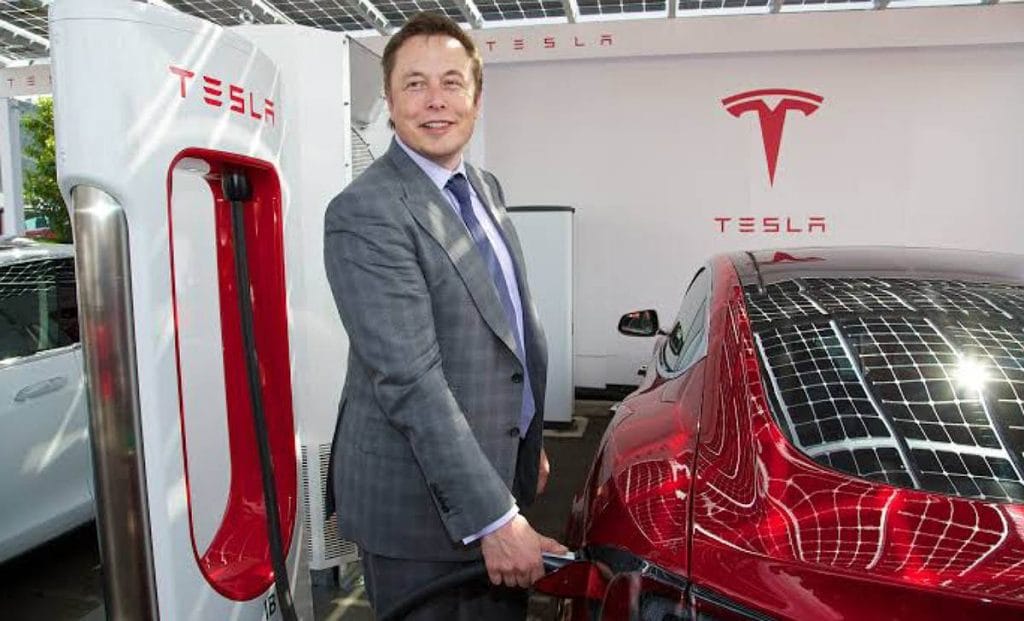Tesla has always been a hot topic when it comes to business, innovation, and controversy. As a company led by Elon Musk, it’s no stranger to criticism—especially from public figures.
Recently, Robert Reich, former U.S. Secretary of Labor and UC Berkeley Professor, took aim at Tesla, accusing the company of not paying federal taxes in 2024 despite earning $2.3 billion in the U.S.

Reich’s post on X stirred controversy, accusing big corporations and the wealthy of getting away with “waste and fraud” by not paying their fair share in taxes.
But Tesla’s Vice President of Finance, Sendil Palani, wasn’t having it. He quickly responded, explaining why Tesla’s tax situation is not fraud—and Elon Musk himself later chimed in with his own take.
Reich’s Accusation: Tesla Paid $0 in Federal Taxes
Reich, a longtime critic of Elon Musk, took to X (formerly Twitter) to call out Tesla’s federal tax payments—or lack thereof.
“You want waste and fraud? Look at what some big corporations and the rich are getting away with.”
He pointed out that despite Tesla making $2.3 billion in the U.S. in 2024, the company reportedly paid $0 in federal taxes.
Reich has been vocal about Musk and Tesla before. In August 2024, he wrote an article in The Guardian, proposing ways to “rein in” Elon Musk, including:
- Boycotting Tesla
- Boycotting X
- Regulators threatening Musk with arrest
This latest post was just another shot in an ongoing war of words between Reich and Musk.
Tesla’s Response: “This Is Not Fraud”
Palani didn’t waste any time responding to Reich’s accusations, making it clear that Tesla fully complies with all tax regulations.
“Professor, Respectfully, Tesla’s income taxes are not an example of fraud. Tesla complies with all tax regulations in all of the regions of the world in which we operate.”
Palani explained that Tesla’s 2024 financials were publicly disclosed in its 10-K filing and that Reich’s claim ignored Tesla’s net operating loss (NOL) carry-forwards—a common accounting practice for companies that have experienced years of losses.
“Details about 2024 Income Taxes were disclosed last month in our 10-K. Notably, we outline our net operating loss carry-forwards, which result from the fact that Tesla has been unprofitable for the significant majority of its 20+ year history.”
Palani emphasized that Tesla operated at a loss for many years, and these losses are now being applied to offset current tax liabilities—a standard practice in corporate finance.
“This has been a very, very difficult business to build. Looking at any one recent year in isolation, therefore, will not provide the full picture.”
Professor,
Respectfully, Tesla’s income taxes are not an example of fraud. Tesla complies with all tax regulations in all of the regions of the world in which we operate.
Details about 2024 Income Taxes were disclosed to last month in our 10-K. Notably – we outline our net…
— Sendil Palani (@sendilpalani) February 9, 2025
In simple terms: Tesla didn’t pay federal taxes in 2024 because of past losses—not because of fraud.
But the discussion didn’t stop there.
Elon Musk’s Take: “We Need Tax Reform”
Shortly after Palani’s response, Elon Musk himself joined the conversation with his own perspective.
Musk didn’t deny that Tesla avoided paying federal taxes in 2024, but he backed up Palani’s argument that the company had significant past losses that justified the tax situation.
“Yeah. Tesla losses were high for many years, so carry forward.”
He also pointed out that most of Tesla’s profits don’t come from the U.S.
“Super majority of profit is from production and sales overseas, not U.S.”
However, Musk did acknowledge that there’s a bigger issue at play—the need for tax reform in the U.S.
“But the point I am making IS that we need tax reform!”
Yeah. Tesla losses were high for many years, so carry forward.
Super majority of profit is from production and sales overseas, not US.But the point I am making IS that we need tax reform!
— Harry Bōlz (@elonmusk) February 9, 2025
Breaking It Down: Did Tesla Really Avoid Taxes?
Tesla’s $0 federal tax payment in 2024 sounds alarming—until you understand how corporate taxes work.
- Tesla’s past losses are now being applied to reduce current taxes—this is called net operating loss (NOL) carry-forward.
- This is a standard practice used by many companies that were unprofitable for years before becoming successful.
- Most of Tesla’s profits come from international markets, not the U.S., meaning a large portion of its tax liability falls outside of American jurisdiction.
Simply put: Tesla followed legal tax rules, and its $0 tax bill in 2024 was not the result of fraud, but rather the result of accounting for past losses.
What’s Next? The Bigger Tax Debate
While Tesla’s tax situation is legal, it highlights a larger debate:
- Should companies that become profitable after years of losses still be able to avoid taxes for years?
- Should businesses be taxed based on their global profits, rather than only their U.S. earnings?
- Should tax laws be reformed to prevent large corporations from paying $0 in federal taxes?
Even Musk himself agrees that the system needs reform, but the real question is how and what changes should be made.
In conclusion, Tesla vs. Reich—Who’s Right?
- Reich’s accusation made it seem like Tesla was engaging in fraud by paying $0 in taxes, but he ignored the standard accounting practices that justify it.
- Tesla’s response was clear: The company fully complies with tax laws, and its lack of federal tax payments was due to years of prior losses.
- Musk’s take acknowledged the issue but shifted the focus to the need for tax reform rather than Tesla’s specific situation.
Should companies like Tesla be required to pay taxes despite past losses? Or is the system fair as it is?
What Do You Think?
Is Tesla justified in paying $0 in federal taxes, or should companies like Tesla be required to contribute more? Drop your thoughts in the comments below.